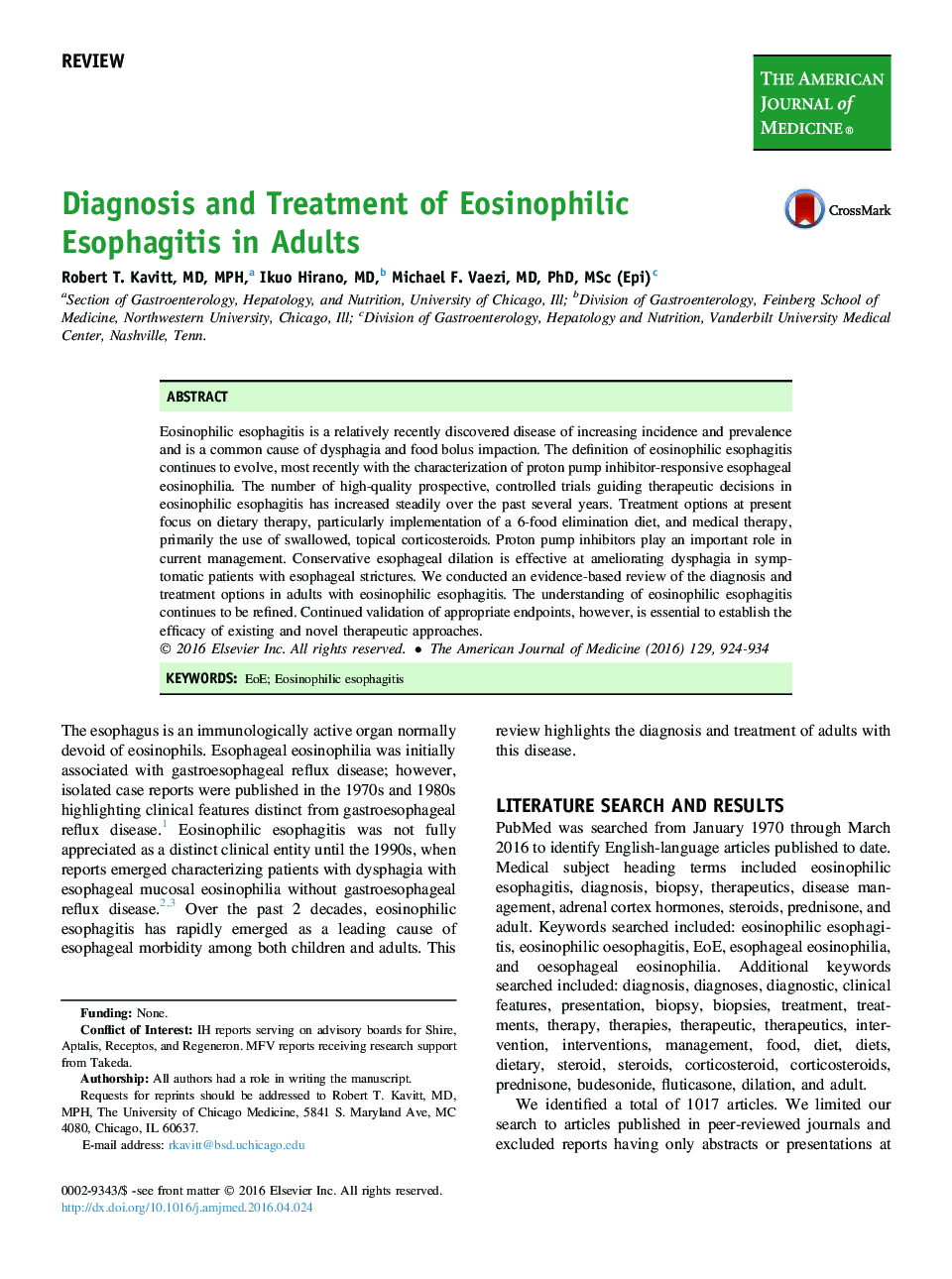| Article ID | Journal | Published Year | Pages | File Type |
|---|---|---|---|---|
| 2718278 | The American Journal of Medicine | 2016 | 11 Pages |
Eosinophilic esophagitis is a relatively recently discovered disease of increasing incidence and prevalence and is a common cause of dysphagia and food bolus impaction. The definition of eosinophilic esophagitis continues to evolve, most recently with the characterization of proton pump inhibitor-responsive esophageal eosinophilia. The number of high-quality prospective, controlled trials guiding therapeutic decisions in eosinophilic esophagitis has increased steadily over the past several years. Treatment options at present focus on dietary therapy, particularly implementation of a 6-food elimination diet, and medical therapy, primarily the use of swallowed, topical corticosteroids. Proton pump inhibitors play an important role in current management. Conservative esophageal dilation is effective at ameliorating dysphagia in symptomatic patients with esophageal strictures. We conducted an evidence-based review of the diagnosis and treatment options in adults with eosinophilic esophagitis. The understanding of eosinophilic esophagitis continues to be refined. Continued validation of appropriate endpoints, however, is essential to establish the efficacy of existing and novel therapeutic approaches.
